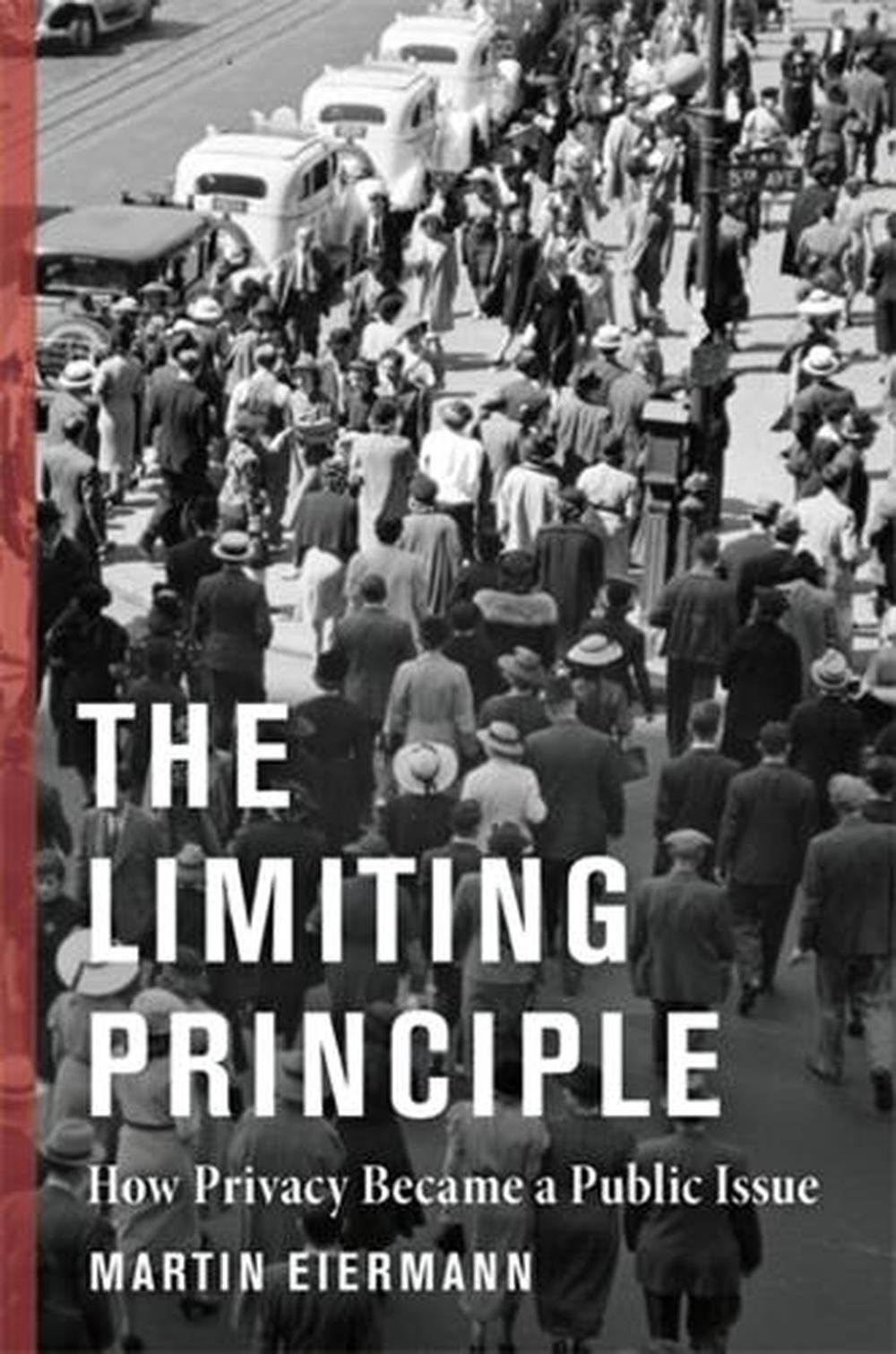
The Limiting Principle
how privacy became a public issue
$55.37
- Paperback
360 pages
- Release Date
29 July 2025
Summary
The Limiting Principle: How Privacy Shaped Modern America
The concept of privacy is central to public life in the United States, a fulcrum for conflicts over reproductive rights, consumer protection, tech power, and state surveillance. How did privacy gain such importance, and what have the consequences been for American institutions and society?
Martin Eiermann traces the transformation of privacy from informal cultural norms into a potent political issue. Around 1900, amid…
Book Details
| ISBN-13: | 9780231218887 |
|---|---|
| ISBN-10: | 0231218885 |
| Series: | The Middle Range Series |
| Author: | Martin Eiermann |
| Publisher: | Columbia University Press |
| Imprint: | Columbia University Press |
| Format: | Paperback |
| Number of Pages: | 360 |
| Release Date: | 29 July 2025 |
| Weight: | 558g |
| Dimensions: | 235mm x 156mm |
You Can Find This Book In
What They're Saying
Critics Review
Eiermann shows that the issue of privacy has become the bearer of a host of social problems, legal concerns, and political conflicts. With wit and erudition, his historical argument musters an unusually wide body of evidence and touches on many of the most important controversies of our day. This is a compelling and insightful work. – Bruce G. Carruthers, author of The Economy of Promises: Trust, Power, and Credit in AmericaWhat should be known? By whom? For what purposes? As Martin Eiermann argues in this elegant and innovative analysis, “privacy” is not a settled legal concept but an evolving response to threats of urbanization, commercialization, and our dependence on the firms, professionals, and governments entrusted with our personal secrets. – Elisabeth S. Clemens, author of Civic Gifts: Voluntarism and the Making of the American Nation-StateMartin Eiermann’s masterful study of the “Early Information Age” in America reveals how privacy evolved from a private concern into a public obsession, and how a “limiting principle” on state, corporate, and public surveillance became inscribed in jurisprudence, regulation, and urban space. An indispensable antidote against our presentist myopia. – Marion Fourcade, coauthor of The Ordinal SocietyRather than ask what privacy is or why it has vanished, Martin Eiermann provocatively reframes the question: how did privacy become foundational to political discussions and social debates, and then U.S. institutions and laws, in the first place? With stunning precision, he illuminates the early-twentieth-century emergence of the “privacy architecture” within which Americans still live. – Sarah E. Igo, author of The Known Citizen: A History of Privacy in Modern America
About The Author
Martin Eiermann
Martin Eiermann is an assistant professor of sociology at the University of Wisconsin–Madison.
Returns
This item is eligible for free returns within 30 days of delivery. See our returns policy for further details.




